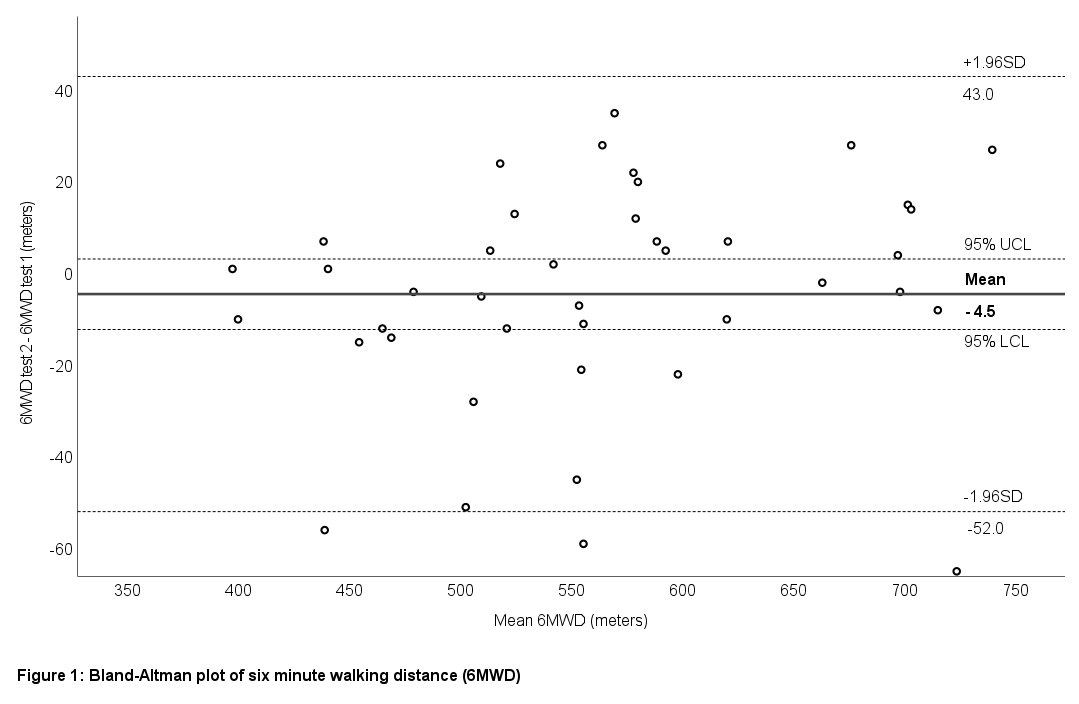Abstract
Introduction:
The six-minute walking test (6MWT) is a valid tool to test patients? exercise capacity. The reported six-minute walking distance (6MWD) learning effect in patients with chronic respiratory diseases is reflected in international guidelines. Though, no information is available on this learning effect in patients with long COVID.
Aim:
To investigate whether there is a learning effect on the 6MWD in patients with long COVID.
Methods:
Cross-sectional data of long COVID patients, included in the ongoing PuRe-COVID trial (NCT05244044), were used for analysis. At baseline, a 6MWT was performed twice on the same day with a time interval of at least 30 minutes, according to the ERS/ATS technical standard, in a hospital corridor of 50m. The 6MWD and perceived rating of exertion (RPE) and dyspnea (RPD) were compared, using a Paired Samples T-test.
Results:
Forty-one patients were included (68% females, age 50±12 years). There was no statistically significant change for 6MWD (p=0.24), as shown in Figure 1. There was a mean change for RPE of 0.3 ([-0.2;0.8], p=0.29) and for RPD of -0.3 ([-0.7,0.2], p=0.25).
Conclusions:
Although on average no significant difference was observed between the two consecutive 6MWD and as such no systematic learning effect was observed, a lot of individual variation was present. This may have implications in designing studies using the 6MWD as an outcome measure in patients with long COVID.